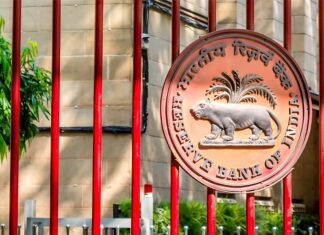Home Search
Search results: NBFC
Cyril Amarchand advises on resolution plan for NBFCs
Cyril Amarchand Mangaldas has advised the National Asset Reconstruction Company Limited (NARCL) and the India Debt Resolution Company Limited (IDRCL) on the resolution plan for two non-banking financial companies (NBFCs) under insolvency proceedings.
“This was...
Khaitan acts for Svatantra Microfin in NBFC-MFI acquisition
Khaitan & Co has advised Svatantra Microfin on its proposed acquisition of Navi Finserv and Navi Technologies’ shareholding in Chaitanya India Fin Credit.
Khaitan partners Saswat Subasit and Vidushi Gupta led the transaction team with...
Scale-based regulation for NBFCs – A pragmatic approach
Recognising the contribution of non-banking financial companies (NBFCs) to the banking system and the need to review the existing regulatory framework due to their changing risk profile, the Reserve Bank of India (RBI) in...
NBFCs are now subject to prompt corrective action
In October 2021, the Reserve Bank of India (RBI) released a scale-based regulatory framework for non-banking financial companies (NBFC) to tackle systemic risks posed by the sector. Continuing its steady march forward in aligning...
New internal ombudsman scheme for NBFCs
In recognition of the systemic importance of non-banking financial companies (NBFC) in credit delivery and their integration into the financial sector, the Reserve Bank of India (RBI) issued directions on 15 November requiring NBFCs...
RBI restricts investments in NBFC from FATF non-compliant countries
The Reserve Bank of India (RBI) issued a notification on 12 February 2021 further restricting investments in non-banking financial companies (NBFC) from jurisdictions, which are on the Financial Action Task Force’s (FATF) black list...
Proposed scale based governance frameworks for NBFCs
Non-banking financial companies (NBFCs) have grown rapidly, and are increasingly interconnected to capital markets and other components of the financial system. The dominance of NBFCs in the fintech space and the reliance that retail...
NBFCs brought under purview of insolvency code
With the introduction of a codified law on insolvency and bankruptcy processes, restructuring jurisprudence entered a new era. While the new law focused on rehabilitating and restructuring stressed companies, restructuring processes involving financial service...
Harmonization of NBFC categories
The Reserve Bank of India (RBI) issued a notification on 15 February 2019 merging asset finance companies, loan companies, and investment companies into a new category called non-banking finance company - investment and credit...
Jury out on partial credit enhancements for NBFCs
To reduce the burden on banks for financing infrastructure projects, and to promote the use of the corporate bond market for this purpose, the Reserve Bank of India (RBI) permitted banks to provide partial...
Regulation of outsourcing finally extended to NBFCs
Outsourcing has become increasingly complex. The world over, laws and regulatory frameworks have been put in place to permit execution and management to take place outside, while ensuring that the key risks and responsibilities...
RBI permits NBFCS to refinance infrastructure, project loans
The Reserve Bank of India, through a circular dated 2 June, has permitted non-banking financial companies (NBFCs) to refinance infrastructure and other project loans by way of take-out financing without a predetermined agreement with...
NBFCs to enjoy SARFAESI protection
The Securitisation and Reconstruction of Financial Assets and Enforcement of Security Interest Act, 2002 (SARFAESI), provides certain measures for recovery of non-performing assets to “financial institutions” as defined under section 2(1)(m) of SARFAESI. The...
Documentation expected to reflect new NBFC rules
The Indian banking sector has witnessed a paradigm shift in the past decade. Non-banking financial companies (NBFCs) have played a pivotal role in providing an array of financial services and innovative products, and have...
Rule changes for NBFCs: An unwelcome intrusion?
The global financial crisis sharply brought into light the role of non-banking financial companies (NBFCs) and the relative ease for “shadow banking” entities in India to conduct the business of lending. For instance, unlike...
Regulatory framework for NBFCs revised
The Reserve Bank of India issued a new set of norms for non-banking financial companies (NBFCs) through a circular dated 10 November.
The changes, which aim to increase transparency and improve compliance, come three years...
Shares held by non-residents can be pledged to NBFC
The Reserve Bank of India, through a circular dated 6 June, has relaxed provisions relating to the pledge of equity shares (listed on a recognized stock exchange in India) held by non-resident shareholders in...
RBI approval mandatory before acquiring NBFC
Following a notification on 26 May, it is now mandatory for companies to obtain prior approval from the Reserve Bank of India (RBI) for any acquisition or transfer of control in any non-banking financial...
RBI restricts issue of debt securities by NBFCs
The Reserve Bank of India (RBI), through a circular dated 27 June and a clarification on 2 July, has imposed certain restrictions on the issue of debt securities by non-banking financial companies (NBFCs). The...
Rules for NBFC microfinance companies change
The Reserve Bank of India (RBI) created a new category of non-banking financial company (NBFC) known as non-banking financial company-micro finance institution (NBFC-MFI) through a circular on 2 December 2011 (circular 1). After receiving...
Warburg seizes stake in NBFC
India’s Future Group announced that it will divest its 53.67% stake in Future Capital Holdings to Warburg Pincus, a private equity firm.
Future Group operates some of India’s major retail chains through its flagship operation,...
NBFCs: Can banks still benefit from regulatory arbitrage?
Until recently, non-banking financial companies (NBFCs) were less-stringently regulated than banks by the Reserve Bank of India (RBI), and were thus considered an arbitrage boon in disguise by the financial services sector. NBFCs became...
The key aspects of India’s Data Protection Act
← Back to index
The Digital Personal Data Protection Act, 2023 (DPDP Act), is a landmark in India’s journey towards robust data privacy regulations. Enacted in August 2023, the act is poised to redefine the...
RBI’s draft directive for housing finance companies
In 2020, with the commencement of the transfer of the regulation of housing finance companies (HFC) from the National Housing Bank (NHB) to the Reserve Bank of India (RBI), the RBI began introducing various...
A new climate for regulating financial risk
In its February 2024 statement on developmental and regulatory policies, the Reserve Bank of India (RBI) explicitly recognised that “climate change can translate into climate-related financial risks” for regulated entities (RE) “which can have...
Aarna brings corporate expert Manjushree Somasundara on board
Manjushree Somasundara, who brings more than two decades of experience to the table, has joined Aarna Law as a partner in its corporate advisory team.
“I look forward to utilising my experience and knowledge in...
Flow interrupted!
The central bank’s move to curb evergreening loans looks set to backfire as the future of alternative investment funds may hang in the balance, writes Freny Patel
Many non-bank finance companies (NBFCs) are running pillar-to-post...
RBI guidelines boost transparency in India’s debt market
In a bid to bring more transparency and stability to the short-term debt market, the Reserve Bank of India (RBI) has issued new guidelines governing commercial papers (CPs) and non-convertible debentures (NCDs) with maturities...
Does private credit need stricter regulation?
Private credit has become an attractive source of funding for issuers, compared to traditional sources. This is because the Reserve Bank of India (RBI) has stricter regulations and has tightened lending standards for banks...
RBI as consumer loans watchdog or obstruction
Following many months of telegraphing its continued discomfort with the rapid growth in personal loans and unsecured credit, the Reserve Bank of India (RBI) has issued its most obvious sign of tougher action to...
RBI stiffens IT rules for finance sector players
The Reserve Bank of India (RBI) is introducing specific guidelines for information technology practices in banks and non-banking financial companies (NBFCs).
The Reserve Bank of India (Information Technology Governance, Risk, Controls, and Assurance Practices) Directions,...
CBIC lowers threshold for e-invoices
The Central Board of Indirect Taxes and Customs (CBIC) has announced a significant reduction in the aggregate turnover threshold for e-invoices in a bid to broaden the tax base and promote digital tax compliance.
The...
Discipline not profit drives RBI reform proposals
The Reserve Bank of India’s (RBI) statement of February 2023 on developmental and regulatory policies noted that RBI supervisory reviews found divergent practices among regulated entities (RE), excessive charging of penal interest, and resulting...
Indian Law Firm Awards 2023
Recognising and rewarding exceptional legal work. Katherine Abraham reports
India’s legal industry is experiencing a surge in activity, driven by increased deal-flow and record-breaking IPOs. While the most recognised law firms continue to dominate on...
Budget 2023: Proposed changes
Raghavan Ramabadran, Bharathi Krishnaprasad and Sahana Rajkumar of tax specialist law firm Lakshmikumaran & Sridharan discuss the significant amendments proposed in the budget
Apart from laying out the broad plans of the government in respect...
Lending apps under RBI scrutiny
India’s digital lending industry, which is expected to grow in worth to USD1.3 trillion by the end of the decade, has been subject to a clampdown by the central bank. The Reserve Bank of...
RBI takes credit for curbing PPI financing
On June 20, 2022, the Reserve Bank of India (RBI) issued directions to all non-bank prepaid payment instrument (PPI) issuers that loading of PPIs through credit lines was not permitted (PPI credit circular). This...
Who dares wins, but not at our expense
To align the regulatory framework for non-banking financial companies (NBFCs) with mainstream governance practices, the Reserve Bank of India (RBI) introduced a scale-based regulatory framework for NBFCs in October 2021. This included governance-related requirements.
The...
Indian Law Firm Awards 2022
Discover our other annual awards Award
In a celebration of hard work, ingenuity and excellence, India Business Law Journal reveals the winners of the 2022 Indian Law Firm Awards. Vandana Chatlani reports
In the past 12...
RBI recasts framework for microfinance providers
Microfinance regulation has previously focused on non-banking financial companies – microfinance institutions (NBFC – MFI), and not on other entities engaged in microfinance such as banks and other NBFCs. The Reserve Bank of India...
RBI relief for fintech’s credit report quandary
Reserve Bank of India's move to allow fintech companies to access credit information via credit bureaus is a positive move, but ownership and control issues remain unresolved, writes Kaushal Mathpal
A
s per the Reserve Bank...
Kapur, Chandy re-elected as JSA joint managing partners
Amit Kapur and Vivek Chandy are re-elected joint managing partners of JSA for another three-year term.
The firm reconstituted its executive committee with Kapur, Dina Wadia, Rupinder Malik, Varghese Thomas and Chandy as the members....
Regulations to implement changes to Factoring Act
Factoring is considered an important source of short-term and working capital financing for micro, small and medium enterprises. It enables them to obtain upfront credit for invoices raised, without over-leveraging balance sheets. Factoring is...
Tightened norms for financial institutions
The Reserve Bank of India (RBI) has been gradually aligning the regulations applicable to banks and non-banking financial companies (NBFCs). Apart from implicitly recognising that NBFCs are fast narrowing the gap with banks in...
Giving credit greater access to data
Digital lending in India has grown exponentially over the past 24 months powered by lending partnerships between fintech platforms and regulated lenders. A key driver has been non-traditional credit analytics that rely on alternative...
IBLJ In-house Counsel Awards
In-house Counsel Awards 2022
India Business Law Journal reveals the country’s leading in-house counsel and corporate legal teams in our very first awards. Gautam Kagalwala reports
Individual AwardsTeam Awards
For the inaugural India Business Law Journal In-house...
Microfinance framework overhaul a welcome move
The Reserve Bank of India’s (RBI) comprehensive regulatory framework for microfinance prescribes requirements such as the nature of borrowers, maximum disbursement amounts and ceilings on interest rates and other charges. However, this framework applies...
Digital lending in India: Move towards regulation
On 15 January 2021, the Delhi High Court directed the government and the Reserve Bank of India (RBI) to respond to a writ petition filed by Dharanidhar Karimojji (petition) seeking the regulation of digital...
RBI ending the party for dividends
Acting on its deserved reputation for hawk-eyed vigilance, in April 2020, the Reserve Bank of India (RBI) directed banks to refrain from making dividend payouts for the financial year ending 31 March 2020. This...
Ordinary course of business is not guaranteed
Section 185 of the Companies Act, 2013 (act), governs transactions involving loans or the provision of guarantees or securities to companies in which a director is interested. Certain loans and guarantee or security transactions...
Lifeline for MSMES dragged down by pandemic
The pandemic and ensuing economic crisis have disproportionately impacted micro, small and medium enterprises (MSMEs). A large number of them face dire operational and financial constraints including a shortage of working capital, difficulty in...
Much needed alignment for housing finance companies
Housing finance companies (HFCs) have traditionally occupied a staid corner of the financial sector, providing loans to homeowners and for the development of the housing industry. As a sector, housing finance has also been...
Analysing financing models for infrastructure projects
The infrastructure sector is critical to India’s development. Financing in infrastructure is expected to grow exponentially over the next few years, particularly as India needs to spend about US$1.4 trillion on infrastructure if it...
Slowing the free fall
Taking stock of the relief measures deployed by regulators to soften the impact of the lockdown. Gautam Kagalwala reports
With the COVID-19 outbreak, the government has been fighting on two fronts. It has introduced a...
Lenders assign GSML debt to ARC
Argus Partners advised a Garden Silk Mills (GSML) consortium of lenders, led by Bank of Baroda, on the resolution of its stressed assets and account under the Reserve Bank of India’s (RBI) circular dated...
Tweaks to ECB directions helpful, but clarity needed
Until recently, proceeds of external commercial borrowings (ECB) were not allowed to be used for working capital or general corporate purposes, or for the repayment of rupee loans, except where an ECB with a...
Changes to expect in fintech with digital KYC
Fintech players are now offering the Aadhaar-based know your customer (KYC) authentication services (Aadhaar e-KYC) made available by the Unique Identification Authority of India (UIDAI) to customers quickly and at a fraction of the...
Mandatory benchmark linking a good move
Communication of any relaxation in lending rates is one of the cornerstones of the monetary policy of the Reserve Bank of India (RBI). One reason for this is that unless the benefit of any...
Rebuilding trust
Maharashtra Real Estate Regulatory Authority chief Gautam Chatterjee talks to Gautam Kagalawala about the role of the regulator, challenges, friction with IBC and other regulations and stress in the state’s realty sector
The government introduced...
RBI issues new framework for stressed asset resolution
The Reserve Bank of India (RBI) issued a revised framework for resolution of stressed assets after the Supreme Court struck down its 12 February 2018 circular. The Framework for Resolution of Stressed Accounts (FRESA)...
Regulations as speed bumps
Dear Editor,
The evolution of FinTech is changing the world of finance rapidly. Peer to peer (P2P) lending, a part of the alternate credit bandwagon, takes advantage of the various limitations of traditional banks and...
New ECB rules open doors to debt funding for startups
Indian companies looking to raise debt overseas have typically had to do so through external commercial borrowings (ECB). ECB can take the form of loans, foreign currency convertible or exchangeable bonds, fixed or floating...
New ECB policy opens doors for foreign capital inflows
To improve the ease of doing business, the Reserve Bank of India (RBI), in consultation with Government of India, notified a new framework for external commercial borrowings (ECB) on 16 January 2019. The new...
Mega-sale of ailing players is looming: Any financers?
Recognizing that infrastructure is the bone marrow of any economy, the Indian government has budgeted approximately US$90 billion towards the infrastructure sector for the fiscal year 2018-19. This sector, however, has some of the...
Foreign funds pouring into affordable housing projects
The launch of Pradhan Mantri Awas Yojana – a government scheme targeting housing for all by 2022 – has led to a shift of focus from the luxury segment to affordable housing. Other factors...
Deals in brief – April 2018
TATA CHEMICALS ACQUISITION
Shardul Amarchand Mangaldas & Co advised Tata Chemicals on its ₹1.2 billion (US$18.4 million) acquisition of the precipitated silica business of Allied Silica Limited (ASL) on a slump sale basis.
The firm’s general...
RBI issues guidance for peer to peer lenders
The Reserve Bank of India (RBI) issued Non-Banking Financial Company – Peer to Peer Lending Platform (Reserve Bank) Directions, 2017, on 4 October. By way of these master directions, the RBI has brought peer...
Banking on secrecy
How private is information provided to a banker? Mohit Shukla describes and analyses the existing norms
Every day, people routinely provide personal information of various types and with varying degrees of sensitivity to banks, insurance agents and...
Deals of the year 2016
Deals of the year 2022
Deals of the year 2021
Deals of the year 2020
Deals of the year 2019
Deals of the year 2018
Deals of the year 2017
Deals of the year 2015
Deals of...
Liberalization of FDI in financial services sector
Implementing the change announced in India’s budget for 2016-17, the Reserve Bank of India (RBI) on 9 September liberalized the norms for foreign direct investment (FDI) in the financial services sector. The effect is...
Paradigm shift to ‘on tap’ universal bank licences
Its monetary policy statement for 2014-15 on 1 April 2014, the Reserve Bank of India (RBI) announced that it would work on a framework for granting licences “on tap” to universal banks, and for...
Investors eye RBI move to regulate P2P lending
The online industry and e-commerce have acted as a game-changer, affecting the nature and dynamic of sectors including transportation, retail, hospitality, etc. It is now perhaps set to do the same to the financial...
External borrowing changes for the infrastructure sector
A country’s economy has a direct correlation with the performance of companies and accessibility to funds. Accordingly, poor performance by companies leads to difficulties in servicing debt and/or accessing additional debt (thereby overleveraging) and...
The curious case of FAQs
Ipsita Dutta takes a look at clarifications issued by financial regulators and how to pre-empt the risks they pose
The Indian financial sector has seen a steady rise in the number and scope of regulations,...
Court denies assignee bank benefit of SARFAESI Act
The assignment of debt by banks and other financial institutions has become quite common. Bombay High Court recently adjudicated upon an interesting aspect of law in relation to one such assignment in the case...
Restrictions on foreign investment by AIFs and VCFs
On 1 October, the Securities and Exchange Board of India (SEBI) issued a circular dealing with regulatory restrictions concerning overseas investments by alternative investment funds (AIFs) and venture capital funds (VCFs) which are registered...
Lenders’ forum and change in ownership issues clarified
The “Framework for Revitalising Distressed Assets in the Economy”, issued by the Reserve Bank of India (RBI) on 30 January 2014, requires banks and non-banking financial companies (NBFCs) to identify stress in their loan...
Budget: No ‘big bang’ but progress for financial sector
With the growing integration of India into the global economy and with the sheer size of the Indian economy, the country’s budget speech has become a keenly anticipated event. Rating agencies, multinational companies and...
More institutions to enjoy powers to enforce security
“Banks and financial institutions at present face considerable difficulties in recovery of dues from the clients and enforcement of security charged to them due to the delays in the legal processes.”
Taking into account the...
Evidence needed to substantiate charge of collusion
Dismissing a complaint in Muthoot Mercantile Ltd v State Bank of India & Ors, the Competition Commission of India (CCI) held that “parallel behaviour needs to be substantiated with the additional evidence” when allegations of...
Deals of the Year 2014
Deals of the year 2022
Deals of the year 2021
Deals of the year 2020
Deals of the year 2019
Deals of the year 2018
Deals of the year 2017
Deals of the year 2016
Deals of...
India in 2015
Six prominent figures from India’s in-house counsel community share their views on the legal developments that will shape domestic and international business in the coming year
The Indian economy is expected to witness accelerated growth...
Analysis of framework to revitalize distressed assets
A report on trends in the banking sector issued by the Reserve Bank of India (RBI) on 21 November 2013 put gross non-performing assets (NPAs) of scheduled commercial banks at 3.6% of the gross...
Evaluating the success of debt restructuring options
The International Monetary Fund recently stated that Indian corporate entities are among the highest leveraged entities in the Asia Pacific region. Recent data show that non-performing assets (NPAs) have risen alarmingly from 2.2% to...
Report proposes revamp of financial sector framework
India’s regulatory framework has been uncharitably, if accurately, described as an accumulation of responses to crises, replete with turf squabbles and blind spots, rather than a comprehensive system of parts with a unified purpose.
The...
Recent consolidated policy: Anything new in it for you?
India’s Department of Industrial Policy and Promotion (DIPP) makes policy pronouncements on foreign direct investment (FDI) through press notes and press releases which are notified by the Reserve Bank of India (RBI) from time...
Guidelines set for issuing of licences for new banks
The The Reserve Bank of India (RBI) recently issued guidelines on the licensing of new banks in the private sector and invited applications by 1 July 2013. While the guidelines have been on the...
Reserve Bank of India releases new banking guidelines
On 22 February the Reserve Bank of India (RBI) released the Guidelines for Licensing of New Banks in the Private Sector, paving the way for new private sector banks to obtain licences. The guidelines...
DIPP updates foreign direct investment policy
On 10 April the Department of Industrial Policy and Promotion (DIPP) released a revised version of the consolidated foreign direct investment (FDI) policy through circular 1 of 2012. The new FDI policy subsumes the...
Factoring Regulation Act: No small change for India
Effective management of working capital is critical to any business enterprise. By receiving funds advanced against invoices, factoring enables a business to free up capital without the need to offer any collateral. Factors also...
Act to bring regulation to business of factoring
Factoring is the assignment of certain debts owed (receivables), for a price, by a person (assignor) to whom the receivables are owed, in favour of a third party (assignee). A much favoured means of...
Directions issued for micro finance institutions
In a welcome move, the Reserve Bank of India (RBI) has extended its surveillance over loans given by non-banking financial companies (NBFCs) to the micro finance sector by issuing directions for a new category...
RBI eases rules for infrastructure investment
The Reserve Bank of India (RBI) has eased restrictions on investments in debt securities to allow foreign institutional investors (FIIs) to invest in non-convertible debentures (NCDs) and bonds issued by non-banking financial companies (NBFCs).
This...
Microfinance Institutions Bill: return of the prodigal son
The recently issued draft Microfinance Institutions (Development and Regulation) Bill, 2011, offers a ray of hope for India’s crisis stricken microfinance institutions (MFIs). Over the last couple of years, the industry has been in...
Consolidated FDI policy: easing investments in India
On 31 March, the Department of Industrial Policy & Promotion (DIPP), Ministry of Commerce & Industry, issued circular 1 of 2011. It reflects the policy framework on foreign direct investment (FDI) in India as...
Private equity firms back Indostar
Everstone Capital Management has joined hands with the private equity arm of Goldman Sachs and UK-based investment manager Ashmore to launch a non-banking finance company (NBFC), which will be known as Indostar Capital Finance.
Indostar...
Deals of the Year 2010
India Business Law Journal showcases 50 of the most significant transactions, court cases and IP enforcement actions of 2010 and reveals the law firms that guided them
George W Russell reports
The international financial crash that...
Microfinance, micro manage
Microfinance is not quite so micro anymore and, as the potential to book profits from it grows, so does its potential for scandal. It is the latter that has prompted a scramble to regulate...
New circular clarifies FDI guidelines
On 1 October, the Department of Industrial Policy and Promotion issued a new circular on foreign direct investment (FDI) policy. Circular 2 of 2010 clarifies the following points:
The manufacturing of “cigars, cheroots, cigarillos...
Issue of non-convertible debentures regulated
The Reserve Bank of India (RBI) has recognized the importance of corporate deposits for meeting the capital requirements of companies in need of finance.
In a circular dated 23 June, the RBI has prescribed directions...
Micro magic
India’s micro financiers have struck gold while reaching out to the poor and vulnerable
Alfred Romann reports
By most definitions Bihar is one of the toughest places in India to do business. The state is unstable and...
Tighter controls on securitizations
As a fall out of the credit crisis, regulators and governments globally are introspecting on every aspect of financial services regulation – be it policy formulation, administration, implementation or enforcement.
The UK has gone as...
Foreign credit will benefit Indian infrastructure projects
In a move designed to provide continued support and deepen access to credit for the infrastructure sector, the Reserve Bank of India (RBI) has through a series of circulars issued on 2 March, introduced...
Liberalizing borrowing norms for infrastructure
The Reserve Bank of India (RBI) classifies non-banking financial companies (NBFC) into three categories: asset finance companies, loan companies and investment companies. All three types of NBFC are expected to maintain a minimum capital...
Fairer financial weather leads RBI to amend ECB policy
The Reserve Bank of India (RBI) has made significant amendments to the Foreign Exchange Management (Borrowing or Lending in Foreign Exchange) Regulations, 2000, which govern policies relating to external commercial borrowings (ECB).
The changes, which...
RBI withdraws some ECB policy relaxations
The recent increase in liquidity and availability of capital in the economy has prompted the Reserve Bank of India (RBI) to change its policy on external commercial borrowings (ECBs), reverting to the pre-credit crunch...
Liberalization of external commercial borrowings
External commercial borrowing (ECB) can take several forms: bank loans; buyers’ credit; suppliers’ credit; securitized instruments; credit from official export credit agencies and international capital markets; and commercial borrowings from multilateral financial institutions, such...
The desperate search for liquidity
India is implementing regulatory changes to tackle the credit crunch. How will the moves help cash-strapped corporations restructure their debt portfolios and access new sources of funding? Karan Singh and Ameya Khandge report
India escaped the...
Making microfinance commercially viable
The Reserve Bank of India (RBI) through various policy measures has sought to promote small-ticket lending (primarily through priority sector lending stipulations). Some of these measures overlap with what is now known as microfinance.
The...
Opening the vault
India’s banking sector is on the verge of a second wave of liberalization. Coming amid a global financial crisis, how will domestic and international banks – and their legal advisers – respond to the challenge? Barney...
Coming full circle: Novel financing structures needed
Historically there have been restrictions on financing by banks. Presently, the Reserve Bank of India (RBI) has capped banks’ credit exposure limits at 15% of their capital funds, in the case of a single...
Raising finances against receivables
One of the means of raising finances is by the absolute assignment of receivables (along with underlying securities) from an obligor to an assignor or originator, that are structured as bankruptcy remote from the...
Legislative and regulatory update – April 2008
The budget
India’s latest budget, unveiled by Finance Minister P Chidambaram on 29 February, includes a number of tax provisions that impact businesses and individuals.
The budget had been expected to include significant changes to the...
Non-banking financial companies consolidate
The non-banking financial companies (NBFC) sector, which grew rapidly in the early 1990s but later witnessed a turbulent period, has been in a phase of consolidation during the last two years.
The main reasons for...


















































































































